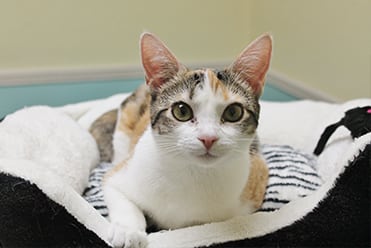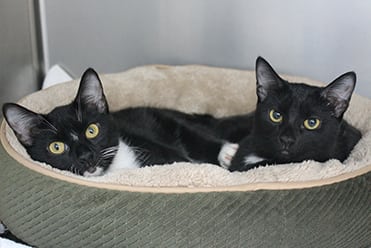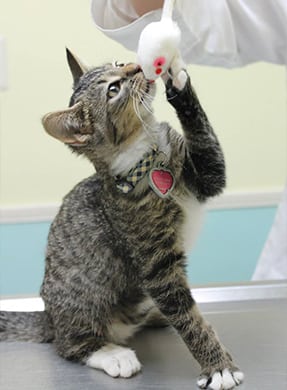Helpful Cat Care Information for Owners in North Charleston
If your best friend is a cat, you’ve likely experienced the many behaviors that are associated with this unique creature. The kneading, the purring, the head butting, the rubbing against your leg, and the inevitable skittishness when moved from their comfort zone. You may have witnessed this skittish behavior while at the vet in the past, but at our animal hospital, we can help make your cat more comfortable.
 Stress-Free Techniques
Stress-Free Techniques
As a stress-free animal hospital that is focused on the comfort of our patients, we utilize a number of techniques that are geared specifically toward meeting the needs of cats. We find that when we use these techniques, our cat patients are more relaxed and can enjoy a stress-free veterinary visit. We’re sure you’d agree that when a cat is calm, its owner can be calm, too! The techniques we use include:
- Giving treats as a form of positive reinforcement
- Letting cats roam freely in the exam room so they can get acclimated
- Using Feliway® pheromones
- Covering cat cages
- Handling cats gently using minimal restraint
- Using “box houses” during hospitalization
Carrier Training Your Cat
If your cat hates traveling in a carrier, consider the following tips:
- Place the carrier in a place that your cat frequently spends time
- Keep the carrier out in the open year-round, not just when it’s time to take your cat to the vet
- Line the carrier with a soft blanket or towel, preferably one that your cat has already used
- Toss a few treats in the carrier
- Use Feliway® pheromone spray or wipes on the carrier
Our Stance on Declawing
In 2016, our practice collectively came to the decision to stop performing medically unnecessary feline declaw surgery. There are some instances, such as tumors, infections, or trauma that may make the procedure medically necessary. After thorough discussion and research, however, we feel that it is undoubtedly in our cat patients’ best interest to discontinue this practice unless medically necessary.
This elective, painful amputation procedure has, in recent years, been scrutinized by many veterinary and animal health organizations. The American Animal Hospital Association (AAHA), American Association of Feline Practitioners (AAFP), American Veterinary Medical Association (AVMA), and Humane Society have all taken the stance that elective declawing should not be performed. We feel that it is only a matter of time before declawing will be banned nationwide, joining Australia and the European Union. In fact, there are several cities in California that have already outlawed declawing, and New Jersey is working on becoming the first state to ban this procedure statewide.
We also feel a moral and ethical need to embrace this movement. If you would like more information about alternatives to declawing, please visit the following sites, or call our animal hospital. We’d be happy to help!
The helper was fabulous – she kept my somewhat skittish cat happy and calm the entire visit. So calm she didn’t want to get out of the little bed and get back into her carrier. The vet was very nice and answered all of my questions thoroughly.
-Anonymous



 Stress-Free Techniques
Stress-Free Techniques